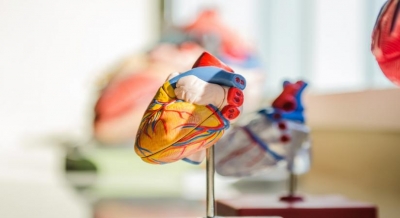New Delhi, July 18 (IANS) US researchers have uncovered how the most common chemotherapy drug doxorubicin causes severe cardiac damage.
The study, published in the journal Nature Cardiovascular Research, shows that doxorubicin activates CD8+ cytotoxic T-cells, which then migrate to the heart and cause inflammation and fibrosis, leading to stiffness of the heart and impaired function.
This mechanism was observed in mice, dogs, and human lymphoma patients. The team at Tufts University found that these T-cells, typically involved in combating viruses, mistakenly target heart tissue after doxorubicin treatment.
Blocking T-cells from entering the heart could potentially prevent this damage. Future research will explore ways to inhibit T-cell migration without affecting doxorubicin’s cancer-fighting efficacy and investigate chemokines as biomarkers to predict cardiac damage.
“I’m really excited about this paper because it’s something completely new in a very old field. It’s difficult, but I hope it motivates more people to look at a stack of literature and not be scared to add anything on top. Science is too difficult to say we’ve figured everything out,” Abe Bayer, a doctoral student in immunology programme at Tufts said.
The finding could be a potential game changer in the field of cardiology. Importantly, the study was a cross-species research, facilitated by the availability of canine and human samples, which opens broader avenues for safer chemotherapy treatments in the future.
–IANS
ts/rvt/kvd


Comments are closed.